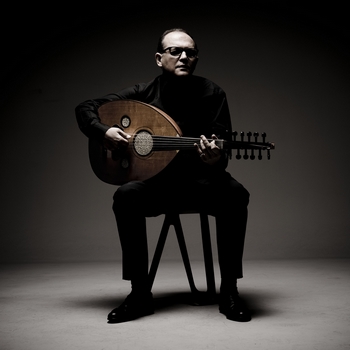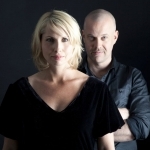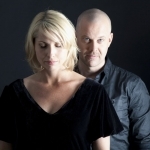jazz
Viktoria Tolstoy

Présentation du spectacle
Nouvel album janvier 2017 chez ACT "Meet Me At The Movies"
Tournée exceptionnelle en duo avec le pianiste suédois Jacob Karlzon
Album octobre 2013 " A moment of now " - ACT Music
En tournée également en quartet ou quintet
Album " A moment of now" en duo avec Jacob Karlzon, octobre 2013 chez ACT Music
Le dernier album enregistré par Viktoria Tosltoy est le plus direct et sincère à ce jour, pour une raison simple : « Jacob Karlzon et moi-même sommes tous simplement le concept cette fois ! » explique la chanteuse suédoise.
Après son hommage à Herbie Hancock, Viktoria a souhaité enregistrer un album plus intime avec le partenaire musical qui l'accompagne depuis plus de quinze ans. Jacob Karlzon, malgré le succès de sa carrière en trio, est toujours disponible pour Viktoria : son jeu clair obscur subtil, tout en nuances et ambiguïtés harmoniques, est le parfait contrepoint à la voix suave de la chanteuse.
Ici, point de frontières stylistiques, puisque le duo interprète de chansons ou thèmes allant de Grieg et Fauré à Cole Porter, Stevie Wonder, Joe Zawinul, Pat Metheny, Phil Collins, Peter Gabriel, Level 42, ou KoRn ! Les deux complices insufflent un nouvel air à des airs très connus et c'est un plaisir de redécouvrir ces superbes mélodies comme mises à nue.
« Certains titres se sont tout naturellement imposé à nous, mais d'autres que nous avons découvert plus récemment ont représenté un véritable challenge ! » avance la Suédoise. Cet album chaleureux a été enregistré sous la houlette de Nils Landgren dans l'environnement presque familial des studios Nilento à Goteborg. « On ne change pas une équipe qui gagne » s'exclame Viktoria.
Biographie
Viktoria Tolstoy a fait une apparition très remarquée sur la scène musicale française en 2004, lors de la parution de son premier album pour ACT, "Shining on You". Composé par Esbjörn Svensson, le leader du power trio suédois e.s.t., cet album est rentré dès sa sortie dans le classement des meilleurs ventes de disques en France, et est resté de nombreuses semaines dans le haut du Top Jazz.
Méconnu du grand public en France, Viktoria Tolstoy et sa voix exceptionnelle ont rapidement séduit un large public, comme en atteste le vif succès remporté lors de son concert parisien au New Morning en mai 2004.
En signant sur Act Records, la chanteuse suédoise Viktoria Tolstoy a pu se faire connaître du monde entier. Ses trois précédents albums sous son propre nom sur le label ACT ne lui ont pas seulement permis d’accéder à la célébrité, ils ont également pu faire reconnaître son talent dans la conception même de son travail.
" My Swedish Heart " était un bel hommage à 50 ans de jazz suédois et " Pictures Of Me " (ACT 9712-2) une interprétation très personnelle et convaincante des plus célèbres chansons interprétées par des icônes de la pop internationale.
Viktoria Tolstoy a sorti en 2008 un nouvel album "My Russian Soul" (sortie le 25 septembre 2008). Elle nous présente un véritable kaléidoscope de la musique russe. Forte de ses racines russes, elle s’est inspirée des grandes oeuvre de la musique russe, classique et contemporaine, et a relevé le défi qui lui tenait à cœur depuis de nombreuse années : explorer sa musicalité russe en mariant sa voix exceptionnelle avec des touches de jazz.
Bien plus qu’un mélange de sonorités russes et scandinaves, Viktoria Tolstoy nous dévoile une autre facette de sa personnalité avec ce nouveau projet. Elle nous invite dans un voyage à travers sa musique et sa personnalité.
En 2011, Viktoria a proposé avec "Letters to Herbie" (sortie le 8 septembre 2011 chez ACT), hommage à Herbie Hancock.
En 2013, elle revient avec Jacob Karlzon pour un album en duo.
Préparez-vous à succomber de nouveau au charme irrésistible de la belle « Etoile du Nord » !
Discographie
"A moment of now"
Duo avec Jacob Karlzon
5 novembre 2013 - The ACT Compagny
"Letters to Herbie"
Septembre 2011 - The ACT Compagny
"My Russian Soul" - 2008 - The ACT Compagny
"Pictures of Me" - 2006 - The ACT Compagny
"My swedish heart " - 2005 - The ACT Company
"Shining on you" - 2004 - The ACT Company
"Blame it on my youth" - 2001 - Kaza EMI
"White Russian" - 1997 - Blue Note
"För Alskad (Too loved)" - 1996 - EMI
"Smile, Love and Spices" - 1994 - EMI
Dossier presse
Télécharger la presse " My Russian Soul "
« Viktoria Tolstoy chante avec ce mélange séduisant de grâce et de sophistication qui charme des la première écoute. » Le Journal du Dimanche
« Voix d’une belle tessiture, phrasé limpide et sensuel, Viktoria Tolstoy est naturelle, spontanée et en phase avec ses musiciens. Un CD à l’image de son interprète, plein de charme. » Le Figaro
« La fausse candeur de sa voix n’a pas fini de faire des merveilles. » 20 minutes
« La voix de Viktoria Tolstoy est juste, son timbre est charmeur. » Classica, mai 2004
Anouar Brahem English Page

Anouar Brahem Quartet - New program 2024
Anouar Brahem : oud
Klaus Gesing : bass clarinet, soprano saxophone
Björn Meyer : bass
Khaled Yassine : darbouka, bendir
For almost forty years and with a current discography spanning no less than 11 albums on the ECM label, Anouar Brahem has been constantly placing the age-old tradition of Arab music, whose emblem is his oud and its superb finesse, in different situations; not only does he set it in contrast against the free spirit and improvisation so typical of modern jazz, but also against the sophisticated harmonies of the erudite compositional tradition of the West and the refined forms of composition in other ancient cultural traditions from the Orient.
He has organized numerous cross-cultural encounters as well as juxtaposing different musical universes, thereby producing unsuspected potential in new but familiarsounding combinations, something which had never been done before. In 2009, he recorded "The Astounding Eyes of Rita", with a new group that included the soft melding of two sounds: the amazing fluidity of German-born Klaus Gesing on bass clarinet and the flowing notes on the bass guitar of Swedish-born Björn Meyer, to give a mixture of ascetic sophistication and sensuous lyricism so typical of oriental music, declined here by the music of the oud with its notes closely interwoven into the percussive background, played by Lebanese artist, Khaled Yassine. This group has had worldwide
success, both for its rich repertoire and the subtlety of the varied instrumentation, and now, ten years later, it is not only totally up-to-the-minute and more enduring and creative than ever, but Anouar Brahem had made a secret pact with himself never to look back and also vowed to renew his inspiration constantly by accompanying each new project with unusual orchestral combinations. So here, recognizing the lasting qualities of this group, he decided to add a new chapter to this story.
His main resource has been these years of shared experiences with the group, where their coherence and self-confidence has been increasing all the time. Anouar Brahem's new adventure puts his own terrain through the prism of this particular sound universe once again, daring to cast a backward glance at his whole career by mixing a few familiar compositions of the quartet with a scattering of older themes from other projects. This leads to further exploration of the orchestral possibilities of a decidedly unusual instrumentation whose origins lie in an extremely up-to-date kind of cross-cultural chamber music. Within this hugely expansive space, Anouar Brahem and his fellowmusicians
create a softly refined, graceful and dream-like world, borrowed as much
from the contemplative oriental tradition as from jazz. The resulting music, rigorously demanding and poetic, moves constantly between modesty and sensuality, nostalgia and contemplation: it is a magnificently intimate spiritual journey to the heart of sound.
The Astounding Eyes of Rita
Album September 2009, ECM
2019 marks the tenth anniversary of the album. And the interest of the audience is still there, as if it was the first year.
With :
Anouar Brahem: oud
Klaus Gesing: bass clarinet
Björn Meyer: bass
Khaled Yassine: darbouka, bendir
A delightful new assembled by Tunisian oud master Anouar Brahem.
The combination of the bass clarinet with the oud suggests a link to Anouar's Thimar trio, but this East/West line-up often feels closer to the more traditionally-inclined sounds of Barzakh or Conte de l'Incroyable Amour. Klaus Gesing, from Norma Winstone's Trio, and Björn Meyer, from Nik Bärtsch's Ronin, are both players with an affinity for musical sources beyond jazz, and they interact persuasively inside Brahem's music.
A dance of dark, warm sounds, urged onward by the darbouka and frame drum of Lebanese percussionist Khaled Yassine. The album is dedicated to the memory of Palestinian poet Mahmoud Darwish.
Souvenance
Music for oud
Album January 2015, ECM
This project is performed in 2 formations:
- the quartet
with Anouar Brahem (oud), François Couturier (piano), Klaus Gesing (bass clarinet ), Björn Meyer (bass)
- the quartet plus a string orchestra of 20 musicians
Probably Anouar Brahem has never gone so far into the balance between formal elegance and freedom of expression, lyricism and restraint, sensuality and asceticism, as he does here with this new repertoire which seems to ideally synthesize almost fifteen years of his personal and aesthetic quest for an authentic "common understanding" between Orient and Occident. Leading a brand-new Quartet, Brahem here revisits every facet of a musical universe that is at once melancholy and introspective in integrating his sensibilities and instrumental languageundeniably anchored in the Arab traditionwith the Impressionist, evanescent piano of colourist François Couturier, the pulsing sensuality of Björn Meyer's electric bass, and the misty, dreamlike, Nordic romanticism from the bass clarinet of Klaus Gesing.
As if to further emphasize the hybrid nature of his universe, here Brahem plunges his quartet for the first time into the sound-fabric of arrangements that are both sumptuous and minimalist, orchestrating a string-ensemble where the soloists (beginning with the melodic enchantments of the oud) are presented in an organic, voluptuous setting which is particularly stimulating. With ever more refinement in its melodic lines and at once contemplative and subtly narrative in its developments, the music contained in Souvenance possesses those qualities of self-evidence, naturalness and simplicity which are the hallmarks of works of genuine inspiration.
Other show already toured :
Blue Maqam
Album October 2017, ECM
Anouar Brahem: oud
Dave Holland: doublebass
Jack DeJohnette: drums
Django Bates: piano
Prestigious European tours in April 2018 and March 2019 :
Uppsala, Konsert & Kongress (Sweden) | Berlin, Boulez Saal (Germany) | London, Barbican (England) | Dublin, The National Concert Hall (Ireland) | Lyon, Auditorium (France) | Anvers, De Roma (Belgium) | Luxembourg, Philharmonic (Luxembourg) | Morges, Théâtre de Beausobre (Switzerland) | Köln, Kölner Philharmonic (Germany) | Paris, Paris Philharmonic (France) | Blagnac, Odyssud (France) | Zurich, Tonhalle (Germany) | Basel, Musical Theater (Switzerland) | Munich, Philharmoni (Germany) | Hamburg, Elbphilharmonic (Germany) | Lisbon, Gulbenkian Música (Portugal) | Brussels, Palais des Beaux-Arts (Belgium)
Biography
For almost forty years, Anouar Brahem, Tunisian composer and oud master, has been creating music both rooted in a highly sophisticated but ancestral culture and eminently contemporary in its global ambition. Anouar appears in many cross-cultural encounters, as well as developing entirely new links and similarities between styles and worlds whose potential closeness had never been considered until he discovered them. For him it was (and still is) a matter of highlighting the age-old Arab tradition of learned music, represented in its finesse by his oud, not only by confronting his instrument with modern jazz, but also with the sophisticated harmonies of the erudite compositional tradition of the West and refined forms from other ancient cultural traditions from the Orient.
His 11 albums on ECM, label acclaimed by the public and international critics alike (including Astrakan Café, Thimar, Le Pas du Chat Noir, Blue Maqams etc.), together with the triumphant success of his haunting music in concerts held in prestigious halls throughout the world, and his fellow-musicians including a remarkable selection of famous jazzmen such as Jan Gabarek, Dave Holland and jack DeJohnette are sufficient evidence to confirm Anouar's place as one of the most fascinating and inspirational artists in the current world of instrumental music.
His sensitive yet rigorous music constantly redefines a cleverly composite universe of poetry and culture, ever balancing between discretion and sensuality, nostalgia and contemplation.
Awards
De Klara's Classical Music Awards: "Best International CD - World" for Blue Maqams (Belgium, 2018)
Echo Jazz Award: "Best International Musician of the Year" for The Astounding Eyes of Rita (Germany, 2010)
Edison Award for Le Voyage de Sahar (The Netherlands, 2006)
Preis der Deutschen Schallplattenkritik (German Record Critics' Award) for Thimar (Germany, 1998)
National Music Award (Tunisia, 1985)
Reviews
The album is at once an extension and an audacious departure from the tradition of the oud. Despite his formidable knowledge of the maqarnat, an ornate system of modes that anchors Arabic music, he seldom bases his improvisations directly on the maqams. His phrasing is pure and uncluttered, expressing itself through silence nearly as often as sound. ... Composed of elegantly flowing lines and somber, breathlike silences, the music shimmers with the overtones of the piano. ... Mr. Brahem bases several of the tunes on spare, broken chords, repeated in the childlike manner of Satie. Simple though they are, however, they contain beguiling Arabesques. The three musicians rarely appear at once, performing as a trio on only seven of the album's 12 tracks. For the most part, you hear duets - piano and oud, oud and accordion, accordion and oud. The musicians often double each other's lines, but seldom in unison, which enhances the music's intimacy while producing a floating, echo effect.If every band projects "an image of coummunity," as the critic Greil Marcus once suggested, then Mr. Brahem's trio - part takht, part jazz trio, part chamber ensemble - evokes a kind of 21st century Andalusia, in which European and Arab sensibilities have merged so profoundly that the borders between them have dissolved. The image may be utopian, but its beauty is undeniable.
Adam Shatz, The New York Times
Throughout the record, the musicians maintain an exquisite balance and make only subtle changes in tempo or tone. Their sense of melancholy is so natural and comfortable it's childlike. On this tune, "Leila and the Land of the Carousel" a waltzing rhythm and revolving melody suggest a girl on that classic joyride...When he quit the oud for a while and played the piano instead, Anouar Brahem recovered his powers of musical myth-making. On this record, he creates a fairy tale setting and ultimately a storybook ending. The accordion lays down sustained chords like lengthening shadows in a forest. The piano conjures low-key sunlight and offers overtones of reconciliation. And in the arabesque path of "The Black Cat's Footsteps," Brahem finds a way back home to his beloved oud and to the songbird inside.
"All things considered", USA - National Public Radio
Son
Album : Letters To Herbie - Titre : Trust me
Album : Letters To Herbie - Titre : I thought it was you
Album : Letters To Herbie - Titre : Letter to Herbie
Vidéo
Viktoria Tolstoy
Duo avec Jacob Karlzon
Viktoria Tolstoy
Duo avec Jacob Karlzon
VIKTORIA TOLSTOY
Shining on you
Viktoria Tolstoy
South Live @ Nyhetsmorgon
Viktoria Tolstoy
Upside Out


























